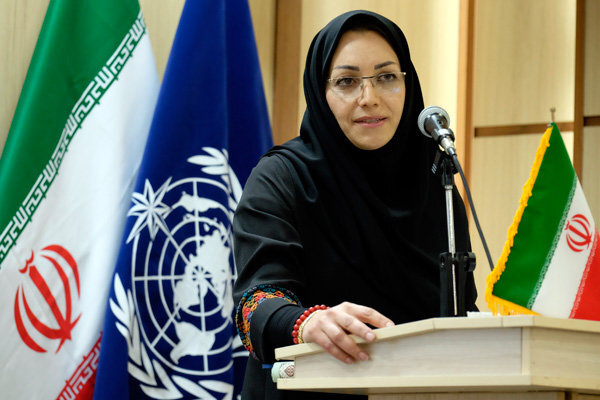Head of Iran Meteorological Organization and Deputy Minister of Roads and Urban Development, Sahar Tajbakhsh emphasized the necessity of developing atmospheric early warning systems and proposed to act for collecting impact-based data and share them with national meteorological and hydrological centers.
The importance of early warning systems is more important than ever due to the increase in the frequency of weather-related extreme events, Tajbakhsh said.
Referring to Iran's technical capabilities and early warning systems, she added that, undoubtedly, access to impact-based data is needed to have atmospheric impact-based warnings, so institutions affiliated to the UN and members of the World Meteorological Organization Region II in Asia may help to aggregate impact-based data and share them with Regional Climate Centers (RCCs) and National Meteorological and Hydrological Centers (NMHSs).
According to Iran Meteorological Organization, during the first day of the conference which was held in Abu Dhabi, the members of the management group of Asia, including the presidents and representatives of the countries of China, Japan, South Korea, India, and Iran spoke in the Early Warning Initiative roundtable and answered questions from other participating members in Region II (Asia).
One of the goals of this conference is to discuss and analyze the socio-economic effects of climate change and the initiatives for early warning. In addition to emphasizing the social importance of weather warnings and meteorological services, the participants in the conference discussed the high efficiency of investment in weather services and its importance in protecting people's lives and property from the risk of weather hazards.
Abu Dhabi, UAE, hosted the Regional Conference of WMO’s Regional Association II (Asia) from 13 to 16 March 2023 in which 32 Asian countries attended.
MNA/



























Your Comment